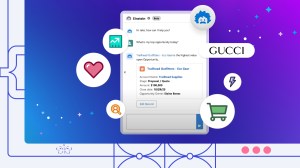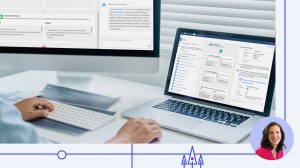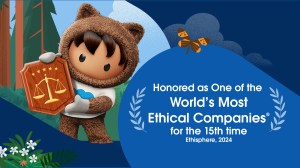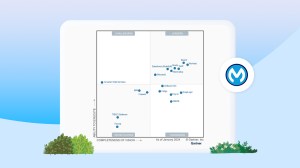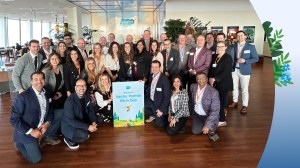At Salesforce, our ecosystem of partners is crucial when it comes to driving innovation across all kinds of industries. To ensure the success of our joint customers, it’s imperative to rethink the way we engage with our partners. J.C. Collins, senior vice president and COO of the Industries & Partners team, is steering the evolution of our partner program. His successes on the job have not only earned him a spot on CRN’S annual list of channel chiefs, but secured him the honor of being named one of the most influential channel chiefs of the year.
Read on to learn more about how J.C. is transforming Salesforce’s partner program, his vision for our channel strategy, and how lessons from his first job as a naval officer continue to steer his career decisions to this day.
What were some key Salesforce partner milestones from this past year that will continue to be important for the ecosystem this year?
Partner enablement is crucial to ensuring partner success, so we launched 18 self-guided “Trailmix” Learning Paths on Trailhead, Salesforce’s online learning platform that empowers people with the skills to land the jobs of the future — all designed to take new partners from zero to expert Salesforce skills simply, quickly and for free. By providing curated content, including thousands of targeted assets and the latest Salesforce updates, paths enable partners to grow their business, get certified and deliver customer success. Since launching at Dreamforce in September, more than 25,000 partner employees have leveraged these Trailmixes 185,000 times to learn skills to position and deploy Salesforce solutions.
What is a key Partner Program differentiator or offering?
We strive to provide a different kind of partnership for our entire ecosystem, which is founded upon one of the keys to Salesforce’s own success— our Ohana culture— and a strong value alignment. We introduced the Ohana Hub in FY19, which allows for a different type of partner experience — partners can engage our internal Ohana groups, as well as be recognized for their own participation in some of our Ohana initiatives like Pledge 1%, sustainability efforts or veteran job placement with Vetforce. This coming year, we’re adding new offerings to our program focused on getting our new and emerging partners, as well as our consulting partners, up and running fast.
What’s one particularly innovative way that Salesforce helped partners solve problems last year?
One of the biggest challenges we keep hearing from our partners is their need to rapidly grow their talent pipeline. We want to make it as easy as possible for our partners to connect with top talent and job seekers. Last year, we worked with Trailhead University Programs to link new talent on campuses to employers looking for Salesforce trained professionals. Additionally, we engaged mid-career professional with our Vetforce Program, which grew to over 11,000 members this past year. Working closely with our Trailhead team, we’re doubling down this coming year to bring even more talent into our partner ecosystem.
What’s the key to success for Salesforce partners in 2019?
The key to success for our partners in 2019 will remain the same as it has been since Salesforce was created — tireless focus on the success of our joint customers. As part of our customer success focus, we’re empowering partners with the means to differentiate based on expertise. Our recently launched Navigator Program allows partners to earn distinctions based on the solutions delivered to their customers. We also provide partners with a platform to showcase that differentiation to customers directly through our AppExchange Consulting Partner listings.
What’s the most important lesson you learned from your first job?
My first full-time job was likely distinct for a technology channel professional, as I was stationed as a Naval Officer aboard a guided-missile cruiser. The most important lesson I learned was how to make decisions with imperfect information. Any success I have achieved since then has been attained by applying the simple mantra of, “Ship, Shipmate, Self” — meaning that I always ask myself if a decision is good for the company, for my colleagues and then for myself. Of course, just as important was learning to take responsibility for when a decision did not work out as planned.



